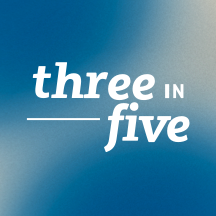Explore institutional insights
- Please enter a search term.
-
Insights
Stay up to date

Market update

Investor insights
-
Investments
Stay up to date

Market update

Investor insights
-
About us
Stay up to date
Learn more about our investment group

Market update

Investor insights
- Please enter a search term.
- Investments
-
Insights
- Back
- Insights
- Insights Overview
-
All insights
- Back
- All insights Overview
- Cash equitization: liquidity with flexibility
- Q3 2021: Investment grade private credit update
- Evaluating private credit opportunities in today’s market
- Leverage and derivatives, powerful tools for pension plans
- 2022 BentallGreenOak Perspective report
- Canadian Pension Risk Strategies 2022
- 2022 Mid-year Global Investment Outlook
- 2022 Corporate Responsibility Summary
- Q3 2022 Investment Grade Private Credit Market Update
- Q3 2022: Quarterly Inflation Watch
- Crescent Capital Markets Q3 2022 Update
- Multi-Asset Credit Strategy: October 2022 Update
- Update on the Real Return Bond Market
- SLC Management Update: real return bonds cessation announcement
- Multi-Asset Credit Strategy: November 2022 Update
- Multi-Asset Credit Strategy: December 2022 Update
- 2023 Global Investment Outlook
- Diversifying fixed income portfolios with alternatives
- Q4 2022: Quarterly Inflation Watch
- Q4 2022: Investment Grade Private Credit update
- Multi-Asset Credit Strategy: January 2023 Update
- Federal budget implications for Canadian preferred shares
- Q1 2023: Quarterly Inflation Watch
- Q1 2023: Investment Grade Private Credit update
- 2023 Mid-year Global Investment Outlook
- Q2 2023: Investment Grade Private Credit update
- July 2023: Inflation watch
- Q3 2023: Investment Grade Private Credit update
- September 2023: Inflation watch
- Narrowly syndicated credit: yield opportunities in an underexplored niche
- December 2023: Inflation Watch
- 2024 Global Investment Outlook
- Q4 2023: Investment Grade Private Credit update
- Looking under the hood at below-IG fixed income
- Q1 2024: Investment Grade Private Credit update
- Q1 2024: Inflation Watch
- Canadian Pension Risk Strategies 2024
- Insurance solutions
- Retirement plan solutions
- Sustainable Investing
- Market updates
-
Three in Five Podcast
- Back
- Three in Five Podcast Overview
- Mark Attanasio on the changing landscape of private credit
- James Slotnick on the U.S. midterm elections
- James Slotnick on the 2022 U.S. midterm elections
- Andrew and John on commonalities in investment grade private credit and narrowly syndicated bank loans
- Laila on operational considerations for investment grade private credit investors
- Cliff Corso on opportunity in the high net worth market
- Kate McKeon on sustainable investing and Net Zero
- Ben Greene on education, allyship, and the trans experience
- Melissa on the importance of the client experience
- Cristina Medina on Invest in Girls
- Steve on the Canadian P&C insurance market
- Rich and Peter on growing stress in the banking sector
- Doug on the debt ceiling
- Jim Blakemore on real estate debt
- Chris and Tim on the Special Financial Assistance Program for Taft Hartley plans
- Veronique on the evolution of LDI investing in Canada
- Chris Wright on the future of private credit
- Beth Brown on workplace burnout
- D.J. on the CMBS market
- Josh Davis on inner mastery and effective leadership
- James Slotnick on the politics of raising the U.S. debt ceiling
- Kevin Quinlan on climate change as a material investment risk
- Steve Peacher on the 10-year anniversary of SLC Management
- David Hamlin on fundamental credit research
- Michael Schnitman on alternatives in the high net worth space
- Steve Peacher reflects on challenges and milestones in 2023
- Subscribe
- About us
- Careers
- Contact us
- Newsroom
- Thank you
- CANADA | EN

Welcome!
Please select your country and language below:
Episode 71
NOVEMBER 7, 2022
James Slotnick on the U.S. midterm elections
James Slotnick, Head of Government Relations at Sun Life, discusses his thoughts on the 2022 midterms in the U.S. ahead of election day.
Steve Peacher: Hi, everyone, Steve Peacher, president of SLC Management, and once again I'm joined by a repeat guest, James Slotnick, who’s head of government relations in the U. S. for SunLife, and it's really timely because we've got midterm elections coming up on Tuesday the 8th, and everybody's talking about it. It's a big deal. James follows these kind of things really closely, and so we want to talk about the elections today. So, James, thanks for taking a couple of minutes.
James Slotnick: Yeah, Steve. Thanks for having me, appreciate it. Hopefully, I can be invited back again. It's always risky when you have a repeat guest.
Steve Peacher: No, no, you're good. You're coming back after the elections to help us understand it. But as we look toward the elections first you know this is the time of polls and people divining trends, so as you read the polls that are out there, and you follow the sources that you follow, are there any trends out there that are surprising you as we're getting really close now to election?
James Slotnick: It's a tough question, Steve, but you know I can understand it. Certainly the polls have not been as accurate as people would have hoped over the last few years. I really going back to 2016, you know a lot of surprises out there. I think generally, though if you're a democrat, you're probably a little nervous seeing what's in the polls. It seems like when you look at what voters are concerned about really on both sides of the aisle, the economy is the number one issue. Going back to the summer when the Supreme Court ruled on abortion it seemed like that was going to be the number one issue, particularly for Democrats. But you know gas prices are still high. Inflation is still high, and so the economy seems to be that number one issue, and that is not playing well for Democrats. You know, looking earlier before this on some of the most recent polls that have come out. And I think if you're a Democrat and you're looking at, say the New Hampshire Race Senator Hassan won a very close race in in 2016, one by like a thousand votes. It was extremely close. With then Senator Ayotte. That race has tightened with Don Bolduc. Democrats were hoping that Bolduc was the candidate. They got him, and now he's in the dead heat with Senator Hassan, and so I think that's a that sends up some red flags for Democrats, you see it in some other battleground states as well. But candidates that Democrats might have preferred to be up against, are performing quite well it looks like in the polls.
Steve Peacher: So it seems to me that if you read the consensus out there would be that the Republicans are probably likely to take the House, and the Senate is kind of a pick em, baby. But since you follow this stuff, I have to ask you what your predictions are. What do you think we're going to end up? What are we going to be talking about on Wednesday morning?
James Slotnick: Steve, if any of any of your listeners listened to any of the webinars I did in 2016, wasn't the most accurate uh predictor, then. But, like I said, most of the polls were wrong, but I've tried to take the polls with a little bit of grain of salt, you know look at both really. You know some Democratic leading polls and some Republican leading polls to get a better sense. I do think that the consensus, as you said, is that Republicans are going to take the House, although Speaker Pelosi, you know, continues to insist that that's not the case, it doesn't it doesn't seem very likely. Republicans are likely to pick up at least fifteen, maybe more. I mean just for a point of reference. Remember, in 2020, even when President Biden won, Republicans picked up fourteen seats in the House. So there has been some movement there. Redistricting helped the Republicans as well a bit. But I think the Republicans, you know, take the House pretty easily, Senate is, Senate's tough, I think, based on it feels like there's just more momentum for Republicans right now. And so you did ask me. So I would say fifty to forty-eight Republicans are going to hold are going to take the Senate, and it's fifty, fifty right now, and I think you're going to see some surprises. But I think Arizona and Pennsylvania are going to put the Republicans over the top. I could be very wrong on that prediction. But that's what I’m thinking.
Steve Peacher: And that these are all these are about the big Federal races, the Senate and the House. But there are other races going on around the country, and there are ballot questions. So what are some of the other important things around the country that will be that are worth paying attention to?
James Slotnick: Federal races are always dominating, but politics is local as you as you mentioned. And so you know, I think Governor's races are also a little bit of surprise. And again we're seeing Republicans have momentum in places where maybe traditionally that they haven't. So I think, on the Governor side Republicans are going to be able to pick up some seats. The ballot questions are interesting, you know. They're all over the map, and you know not every State has them. You know I live in Massachusetts and one important one here that is not worked out so well in other states is, there's a millionaire’s tax on the ballot which would create a new four percent tax on individuals that make more than a million dollars. That is polling very well, and that is likely to pass, and that'll make Massachusetts a third or fourth state that has a tax like that. And so I think that's an interesting trend to watch to see if other states have these ballot initiatives move forward with those. I think maybe the most important thing, though, and this is maybe a little off from what you asked. I'm optimistic that even if there are close races, candidates will concede on both sides, and I think the worst thing that can happen in this midterm is for close races and for members on either side of the aisle to say that the election results are not accurate, or they, you know, something was up, so I’m knock on wood, let's hope that even in these close races we see a concession and things move forward, and hopefully that sets us up for a the same thing when we get to 2024.
Steve Peacher: Well, I like to ask a question at the end which is somewhat kind of a personal question. But I want to ask you something that is kind of your personal preference but related to these issues. So you follow these kind of issues professionally along with legislative actions, etc. So it's, this is what you do. But there's a lot of a lot of us out there who are kind of armchair prognosticators around political events and elections, etc. So if you're if you had advice for those of us who are kind of armchair watchers of this what, are some of the most interesting sources that you look to that would be available broadly to people that might give interesting insights on these kind of things on elections, political issues, that are outside of the norm. What do you like to read?
James Slotnick: Real Clear Politics. I think they do a great job aggregating the polls, and I think that’s important given how the polling has been wrong. FiveThirtyEight, they do a great job of that as well. And then your traditional sources, I mean, I read all the things you do. Wall Street Journal, Washington Post, New York Times. I'm a Politico guy, I think political is great. I know some people aren't huge fans of them, but they do a lot of stuff. The Hill is another great, you know, many of these you can get free things for, but I, for my polling Real Clear Politics. They do the averages, and they also will give you some historical precedent on which polls were better over time, and which weren't. But yeah, no, Steve, it's like Super Bowl Sunday coming up for me on Tuesday, so I’m looking forward to it.
Steve Peacher: One quick follow up actually, on some of those that you mentioned like Real Clear, do those tend to have a bias one way or the other, or they are they pretty objective? I
James Slotnick: That's why I like Real Clear because they just aggregate all the polls, you know, so they'll take the Republican leaning ones and the Democratic leading ones. One narrative that's out there right now is that there seem to be more Republican leaning polls that are being released. And so some people are wondering if that's you know, coloring some of the results. The other side of that is, maybe some of the Democratic leading firms don't have great poll results, and so they're not putting them out there. So I like Real Clear, because they aggregate a lot of them but FiveThirtyEight, you know they're great too.
Steve Peacher: Well, thank you very much, really interesting. It's gonna be fascinating to see what happens and we will speak to again shortly after the elections, and we’d be be interested to hear your summary and your analysis of the results that come through.
James Slotnick: Great, thanks Steve. Appreciate you having me on.
Steve Peacher: Thanks James, and thanks everybody for listening to this episode of Three in Five.
This content is intended for institutional investors. The information in this podcast is not intended to provide specific financial, tax, investment, insurance, legal or accounting advice and should not be relied upon and does not constitute a specific offer to buy and/or sell securities, insurance or investment services. Investors should consult with their professional advisors before acting upon any information contained in this podcast. Any statements that reflect expectations or forecasts of future events are speculative in nature and may be subject to risks, uncertainties and assumptions and actual results which could differ significantly from the statements. As such, do not place undue reliance upon such forward-looking statements. All opinions and commentary are subject to change without notice and are provided in good faith without legal responsibility.
SLC-20221104-2575030



